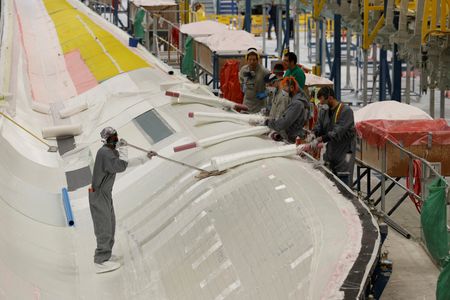MADRID (Reuters) – Spain’s manufacturing activity contracted in March for a second month in a row, as uncertainty lead to a fall in new orders, an S&P Global survey showed on Tuesday.
The HCOB Spain Manufacturing Purchasing Managers’ Index (PMI) slipped to 49.5 in March from 49.7 in February, remaining below the 50.0 threshold that separates growth from contraction. The two monthly declines followed a year of consecutive monthly expansions.
The decline in new orders, attributed mainly to geopolitics and tariff concerns, led manufacturers to reduce inventories and purchasing activity. Export sales dropped for the second consecutive month, marking the largest decline in more than a year.
“Panellists reported increased client uncertainty following the erratic tariff announcements, leading to the postponement of deals,” said Jonas Feldhusen, Junior Economist at Hamburg Commercial Bank.
Despite these challenges, production and employment in the sector rose modestly. Output continued to grow for the seventh consecutive month, albeit at the slowest pace this year, while staffing levels increased slightly, primarily through temporary contracts.
Inflationary pressures eased, with input price inflation softening to its lowest level since last November. However, supplier delays persisted, though to a lesser extent than in previous months.
The outlook for Spain’s manufacturing sector remains uncertain, with Feldhusen warning of potential large-scale production and employment cuts if demand continues to weaken.
The Spanish government expects the economy as a whole to expand 2.6% this year, much faster than most of the rest of the euro area.
(Reporting by Inti Landauro; Editing by Hugh Lawson)










